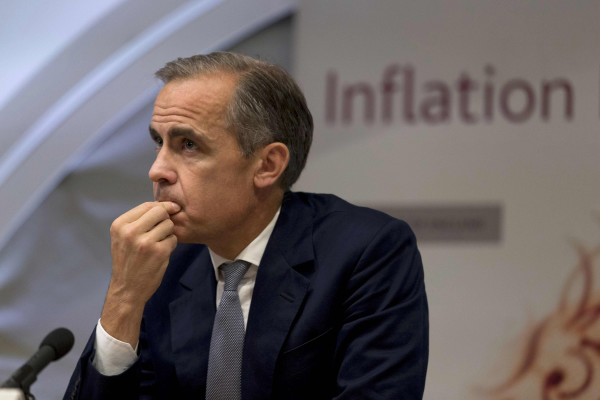

Mark Carney believes there is a one in four chance of a recession in the UK in 2019, if there isn’t a hard Brexit.
In its latest inflation report, the Bank of England revised downward its expectations for economic growth in the UK to 1.2 per cent in 2019, down from 1.7 per cent, and 1.5 per cent in 2020, down from 1.7 per cent.
All of those assumptions were based on the UK exiting the European Union in an "orderly manner".
Earlier this morning, the European Central Bank revised down Eurozone growth to 1.3 per cent this year, from the previous forecast of 1.8 per cent.
The Bank of England forecasts showed it expects little inflationary pressure in the economy over the next three years even if interest rates are left as they are.
It estimated inflation would not reach much above the 2 per cent mark in the period which would trigger interest rates to go up, as it kept the base rate at its current level of 0.75 per cent.
The Bank blamed "softer activity abroad and the greater effects from Brexit uncertainties at home" for the forecast downgrades and the "more dovish attitude to interest rates".
It also cut its forecast for wage growth in the years ahead, which would stop inflation rising.
Ben Brettell, senior economist at Hargreaves Lansdown, said: "Domestically, a tight labour market means wages are growing at their fastest pace in a decade.
"This would usually prompt policymakers to consider raising rates, but a deteriorating global growth outlook and mounting Brexit uncertainty have put paid to any thoughts of tighter policy for now."
John Patullo, a fund manager at Janus Henderson said he expects low inflation to be a central feature of the global economy for years to come.
He said the tax cuts introduced by Donald Trump in 2018 combined with increased spending by the Chinese government to boost economic growth should have caused a sharp rise in global inflation in 2018, but this didn’t happen because there is insufficient demand for goods and services in the world to allow companies to put prices up.
Yael Selfin, chief economist at KPMG UK, said: "The MPC, just like businesses and households across the UK, currently finds itself in limbo until a path to Brexit transpires.
"The moderation in UK growth in recent months, triggered by continued uncertainty around Brexit and a cloudier global economic backdrop saw a significant downgrade to short term forecasts and rules out an early rise in interest rates."
david.thorpe@ft.com




